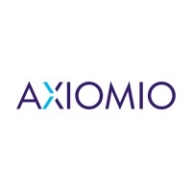

Find out in this report how the two Cloud Cost Management solutions compare in terms of features, pricing, service and support, easy of deployment, and ROI.

Kubecost provides real-time cost visibility and insights for teams using Kubernetes, helping you continuously reduce your cloud costs.
Breakdown costs by any Kubernetes concepts, including deployment, service, namespace label, and more. View costs across multiple clusters in a single view or via a single API endpoint.
Receive dynamic recommendations for reducing spend without sacrificing performance. Prioritize key infrastructure or application changes for improving resource efficiency and reliability.
Quickly catch cost overruns and infrastructure outage risks before they become a problem with real-time notifications. Preserve engineering workflows by integrating with tools like Microsoft Teams and Slack.
Xops offers a robust platform for AWS infrastructure optimization, security compliance, and cost monitoring, delivering real-time alerts and efficient asset discovery for enhanced operational efficiency.
Xops provides users with automated tools for optimizing AWS infrastructure and securing cloud environments. With its AI-driven insights, users can optimize costs, detect threats, and improve their security posture through proactive monitoring and compliance checks. It facilitates asset discovery and automates the detection of idle resources, contributing to significant cost reductions and enhanced security. However, there is room to improve the AI models for anomaly detection and the user experience for more intuitive features. Expanding native support to platforms like GCP and incorporating cross-account resource dependency mapping would greatly enhance functionality. Enhanced dashboards and an interactive AI assistant can further boost user engagement.
What are Xops' essential features?Xops finds its application across industries seeking cloud management solutions, particularly in sectors prioritizing cybersecurity and cost management. Enterprises employ its capabilities for ensuring compliance with standards such as CIS and ISO 27001, conducting cybersecurity measures like DAST scans, and streamlining operational processes through automated deployments. Its deployment enhances financial operations and strengthens security protocols.
We monitor all Cloud Cost Management reviews to prevent fraudulent reviews and keep review quality high. We do not post reviews by company employees or direct competitors. We validate each review for authenticity via cross-reference with LinkedIn, and personal follow-up with the reviewer when necessary.